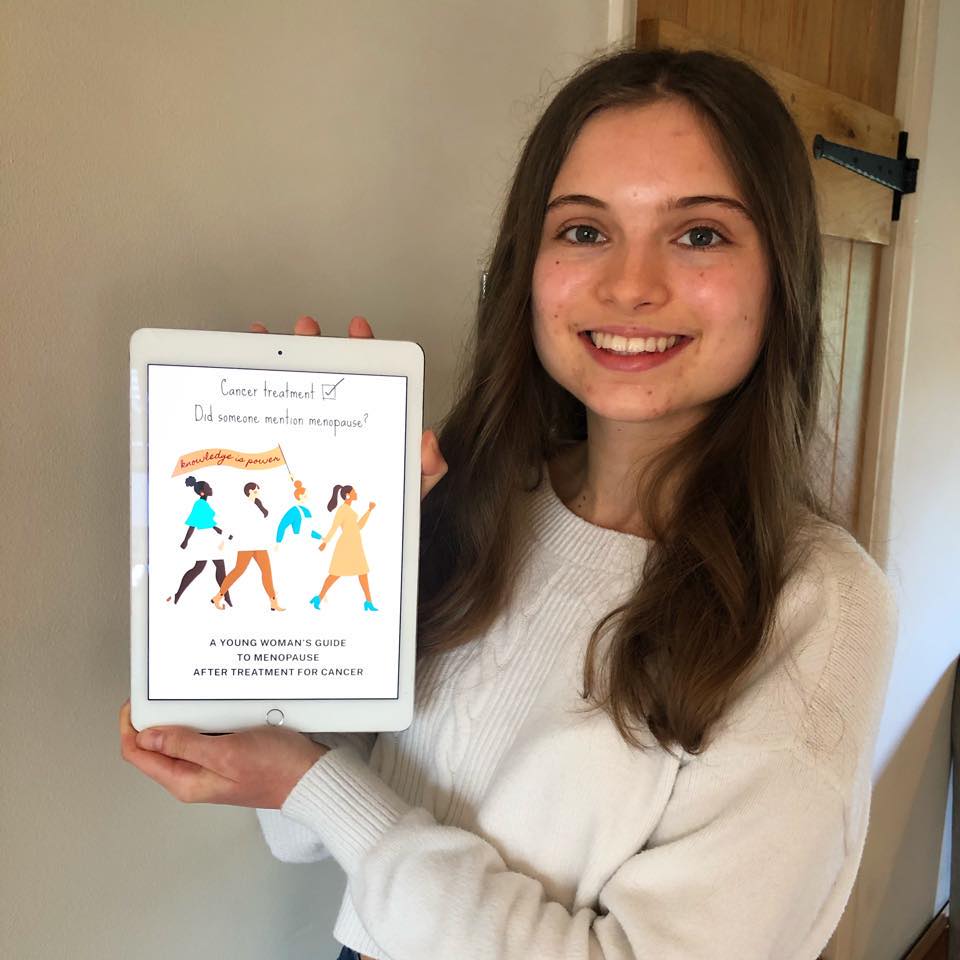Understanding Rhabdomyosarcoma, Rare Soft Tissue Cancer
- Ellie Waters was diagnosed with rare rhabdomyosarcoma at 13 years old and given 20% chance of survival.
- She beat the odds and is now studying to become a doctor to help other young people like her.
- Rhabdomyosarcoma (RMS) is a rare care that forms in soft tissue.
- This cancer is most likely to originate in the head and neck, arms and legs, urinary system such as the bladder or the reproductive system including the vagina, uterus, and testes.
- According to the American Cancer Society, RMS is almost always treated with surgery and/or radiation followed by chemotherapy.
Ellie Waters, now 21 from Kettering, England, was diagnosed with stage 4 alveolar rhabdomyosarcoma, a rare form of soft tissue cancer. She knew something was wrong in September 2015 after finding a lump in her left buttocks.
Read More
The time Waters spent under the care of her doctors and nurses helped her gain a great appreciation for the work they do to help cancer warriors like herself beat the disease. Her appreciation grew to a point she wanted to dedicate her adult life to helping other young cancer patients beat the odds like she did.
"I became obsessed with wanting to become a doctor after having cancer and would research my treatments and would constantly be watching doctor programs on TV," Waters said.
Hopeful Stories From Cancer Survivors
- ‘May All Your Dreams Come True’ — Illusionist Criss Angel Celebrates His Son’s 6th Birthday Amid His Cancer Treatment
- ‘Charlie’s Angels’ Star Jaclyn Smith, 77, Beat Cancer With Help From Women Friends How the Power of Friendship Can Be Invaluable During a Cancer Battle
- ‘I Literally Beat Cancer on My Liver’: ‘Breaking Bad’ Actor and ‘Machete’ Star Danny Trejo, 77, Privately Fought Cancer & Now Has New Memoir
- ‘Cancer Never Beat Him Because it Never Got His Spirit’: ‘SNL’ Star Cecily Strong Remembers Her Cousin Who Fought Brain Cancer
What Is Rhabdomyosarcoma?
Rhabdomyosarcoma (RMS) is a rare care that forms in soft tissue, according to Mayo Clinic. This cancer impacts the skeletal muscle tissue or organs like the bladder or uterus. This cancer is most likely to originate in the head and neck, arms and legs, urinary system such as the bladder or the reproductive system including the vagina, uterus, and testes.
People with a family history of RMS or have a genetic syndrome that increases the chance of getting cancer are at higher risk of rhabdomyosarcoma.
There are different types of rhabdomyosarcoma according to the American Cancer Society which list them as:
Embryonal rhabdomyosarcoma (ERMS). This type of RMS usually affects children 5 years old and younger.
Alveolar rhabdomyosarcoma (ARMS). This type of RMS typically impacts older children, teenagers, and adults. It occurs most often in large muscles such as the arms, legs, and trunk of the body. This type of RMS also grows faster and usually requires more intense treatment.
Anaplastic rhabdomyosarcoma and undifferentiated sarcoma are rare and occurs mostly in adults.
What Are the Signs and Symptoms of Rhabdomyosarcoma?
Symptoms for RMS vary depending on where the cancer is located within the body. RMS in the head and neck may cause headaches, bulging or swelling eyes or bleeding in the nose, throat, or ears.
RMS found in the urinary or reproductive system may cause the following symptoms: trouble urinating or blood in the urine. You may also have trouble with bowel movements or discover a mass or bleeding in the vagina or rectum.
RMS located in the arms or legs may produce swelling or form a lump in your arms or legs and sometimes the lumps can be either painful or painless.
How Is Rhabdomyosarcoma Treated?
Rhabdomyosarcoma is treated depending on where the cancer is located, its size and if it has spread to other parts of the body. According to the American Cancer Society, RMS is almost always treated with surgery and/or radiation followed by chemotherapy.
WATCH: Managing chemotherapy side effects.
Waters' treatment sent her into premature menopause, meaning her ovaries stopped producing hormones and her periods stopped. Six months after being declared cancer-free, Waters was still dealing with lingering issues from her treatment, including hot flashes, difficulty sleeping, fatigue and itchy skin. She was put on hormone replacement therapy or HRT for the symptoms. During HRT, medication replaces the estrogen that the body typically stops making during menopause, Mayo Clinic explains.
“My infertility and early menopause has sometimes made me not feel like a woman and I have had to redefine what being a woman means,” she said.
“I cannot get pregnant so I hope to be there for my patients and go on the journey with them if I become an obstetrician or gynecologist,” she added.
Desire to Help Other Cancer Warriors
After her own battle throughout her teenage years, Waters is currently studying to become a doctor herself.
"Before my diagnosis, I was obsessed with 'The Apprentice' and wanted to make lots of money and enter the corporate world. But after having cancer this all changed," Waters said.
Waters is currently in her second year at Keele University studying to become either an obstetrician or gynecologist.
"The staff at Quenn's Medical Centre also became my role models and were like superheroes to me flying around the wards looking after people and I knew I wanted to be part of this.”
Learn more about SurvivorNet's rigorous medical review process.

